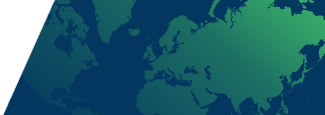

Togo
Synthesis
MAJOR MACRO ECONOMIC INDICATORS
| 2020 | 2021 | 2022 (e) | 2023 (f) | |
|---|---|---|---|---|
| GDP growth (%) | 1.7 | 5.2 | 5.0 | 5.0 |
| Inflation (yearly average, %) | 1.8 | 4.3 | 7.6 | 5.0 |
| Budget balance (% GDP) | -6.9 | -6.0 | -7.5 | -5.5 |
| Current account balance (% GDP) | -0.3 | -2.0 | -5.0 | -6.0 |
| Public debt (% GDP) | 60.2 | 63.8 | 66.0 | 65.0 |
(e): Estimate (f): Forecast
STRENGTHS
- Mining (phosphate, limestone and clay transformed into clinker) and agricultural (coffee, cocoa, cotton) resources
- Only deep-water port in West Africa (Port of Lomé), potential to become a regional hub
- Public and private infrastructure investment
- Ongoing structural reforms (public finance, banking system, agriculture, phosphate and cotton sectors)
- Member of WAEMU and ECOWAS
- Mostly concessional external debt
WEAKNESSES
- High socio-political tensions
- Poor business environment
- High unemployment and poverty rates (46.2% of the population lived in extreme poverty in 2020 according to the World Bank)
- Deficient agricultural infrastructure: storage, processing, irrigation, inputs
- Insufficient education, public health and transport infrastructure
- Poor health of the banking sector; high rate of bad debts (especially for public banks)
- Poor progress in governance (especially in fighting corruption)
RISK ASSESSMENT
Dovetailing with West Africa’s economic recovery
Togo's growth should remain comfortable in 2023 thanks mainly to household consumption (80% of GDP). Both will be linked to the state of the agricultural sector (more than 40% of GDP and around 65% of the active population), particularly the revival of the cotton industry, which experienced low production during the 2020-2021 season. Growth will also depend on trends in global prices for fertilisers, seeds and hydrocarbons, which could potentially accentuate the structural weaknesses of the agricultural sector, thus putting food insecurity faced by the country back on the agenda. However, Togo can count on a US$716 million World Bank-funded regional programme for the resilience of food systems in West Africa (of which US$5.4 million is earmarked for Togo) to help with fertiliser procurement. In addition, the Togolese government's main objective is to invest in the agricultural sector to make it robust and resilient, while encouraging the development of local crops such as cassava, maize and yams as substitutes for imported wheat and rice. Meanwhile, food insecurity, which is fuelled by high imports - more than half its wheat is imported from Russia - risks weighing on the economy. In terms of exports, Togo will be able to count on good trade relations with China, which has removed 98% of its customs duties on imports from Togo and eight other African countries since 1 September 2022. These exports concern cotton seed, palm oil, raw cotton, cement and calcium phosphate. China will also provide financial aid to Togo focused on infrastructure construction and the agricultural sector, such as the loans granted by the Chinese Eximbank to renovate the Lomé international airport and the country’s road network. Construction will also benefit from multilateral concessional project loans and government-financed infrastructure spending. Togo will also benefit from the regional hub status of its capital, Lomé, with its port and the Togo Integrated Industrial Zone (TIIP), which has attracted the interest of a Burkinabe company that invested US$109 million in a cement plant there. ITCRmg, a textile clothing factory, is under construction and should start production in 2023. Services will benefit from continued robust port and airport activity. The government intends to modernise the capital's port operations, notably by digitising them.
Reduction of the budget deficit hindered by inflation
One of the Togolese government's objectives will be to reduce the large budget deficit that emerged in 2020 to meet pandemic-related spending needs, and which has widened to soften the impact of soaring imported inflation on the population. The need for fiscal consolidation is becoming more pressing due to the resolve of the West African Economic and Monetary Union to accelerate the process of creating a new currency, which requires a budget deficit of 3%. The state will try to optimise its revenues by broadening the tax base. The government is also counting on the private sector for infrastructure construction and mining. As a result, private investment will represent 16% of GDP in 2023. The budget deficit will probably be financed by raising fresh debt on the regional market, similar to the 663 billion CFA francs raised in 2022 (about 6% of GDP).
As regards the current account, the trade balance is expected to remain largely in deficit not only as a result of the rise in import prices, despite the rebound in exports due to the recovery of the agricultural sector and trade agreements with China, but also to the rebound in exports to Benin, Mali and Burkina Faso after they softened in 2022 on back of the slowdown in growth in these countries. The surplus on the balance of services is expected to increase in line with port re-export activity. The surplus on secondary income is expected to increase slightly, due to aid and remittances from expatriate workers. The current account deficit is expected to widen in line with the trade balance. It will be financed mainly by project aid and regional borrowing.
Between political stability and social frustration
President Faure Gnassingbé, who has been in power since 2005 (his family has ruled since 1972), was re-elected in 2020 following a campaign marred by accusations of fraud. Gnassingbé should be able to count on a parliamentary majority. The legislative elections scheduled for December 2023 will certainly give victory to the Union for the Republic (UNIR), the presidential party. The weakness of the opposition is mainly due to Togo’s sound economic results (barring the Covid-19 period) and the firmness of the government. Moreover, the government will continue to resort to partisan electoral division while the Independent National Electoral Commission (CENI), in place since the end of April 2022, is made up mostly of members supporting the regime. With regard to security, Togo declared a state of emergency on 13 June 2022 and extended it until March 2023 in the northern Savanes region due to incursions by jihadist groups linked to Al-Qaeda and the Islamic State. Based in the Sahel, notably in Burkina Faso, the groups are seeking to settle in northern Togo. Despite Togolese security forces’ increased presence in the region, the threat remains, mainly due to the lack of involvement of local populations, but also to their discontent, which is reinforced by food insecurity. Togo has excellent relations with China. Relations with the International Monetary Fund and Western partners are sometimes complicated by governance issues, but the country promotes its role in regional security. In this respect, Togo maintains close relations with France. Last, relations with other West African countries are close as they are also concerned by the Islamist threat.
Last updated: April 2023


